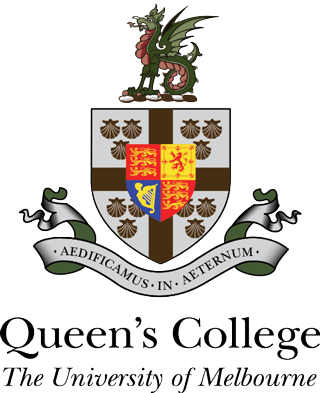Hicks Oakley Chessell Williams reports on the latest guardianship laws
Coronavirus (COVID-19): We’re here to help
While the COVID-19 Pandemic is creating a challenging environment for everyone, we remain open, and have the technology and processes to assist you with your legal matters during this time.
Hicks Oakley Chessell Williams Lawyers (HOCW) has a long association with Queen’s College. Many of our current lawyers are Wyverns*, including Neville Sampson who has joined us as part our recent merger with Boothby & Boothby. Neville and the Boothby & Boothby team are based at our Mount Waverley office and practise predominately in our property and wills and estates departments. Wills and other deeds that were held by Boothby & Boothby are now held by HOCW.
As an established and leading mid-sized law firm, located in Melbourne CBD and in Mount Waverley, we are well equipped with experienced and accredited lawyers to deliver a range of commercial and private client legal services. From commercial law, litigation and dispute resolution to wills, estates, property, conveyancing and family law, we have the expertise to assist you with all your legal needs.
We provide our clients with up to date information about how the latest changes in law and legislation may affect them, such as the new Guardianship Laws.
HOCW report on the Latest Guardianship Laws
People with limited decision-making capacity now have more power to manage their own personal and financial affairs under legislation which recently came into effect in Victoria. The new guardianship laws aim to strike the balance between empowering and protecting Victorians whose capacity to make decisions is limited because of a disability.
VCAT can appoint a Guardian or Administrator
The Victorian Civil and Administrative Tribunal (VCAT) can appoint a guardian or administrator for someone who has a disability and does not have decision making capacity in relation to at least some financial and/or personal or lifestyle matters. When making an appointment, VCAT must be satisfied that it will promote the person’s personal and social wellbeing.
VCAT can appoint a Supportive Guardian or Administrator
Under the new guardianship laws, VCAT is also able to make appointments known as supportive guardians for personal matters and supportive administrators for financial matters where a person with a disability does have decision making capacity if they are provided appropriate support. The role of a supportive guardian and/or administrator is to support a represented person to obtain information and make decisions.
Decision making capacity
Under the new guardianship laws, a person is presumed to have decision-making capacity unless proven otherwise.
They will also be taken to have decision-making capacity if they are able to make a decision with appropriate support and will be deemed to have capacity if they can understand the information relevant to the decision, retain that information, and communicate the decision and their views and needs relating to the decision in some way, including by speech or gesture.
Decision making capacity could be impaired because the person, who is known as a represented person, has a mental illness, dementia, or an intellectual disability.
Guardians can be appointed to make decisions relating to a represented person’s lifestyle, such as:
- where the represented person might live,
- what support services they might access, and
- what medical treatment they might receive.
Administrators can be appointed to make decisions relating to a represented person’s finances. They might be appointed to:
- pay bills on behalf of a represented person,
- buy or sell property on their behalf, and/or
- manage their bank accounts.
Under the new laws, VCAT now has the power to tailor orders to suit the represented person’s needs. For example, an administrator’s role may be limited to buying a property on behalf of a represented person.
What if a guardian or administrator has done the wrong thing?
Guardians, administrators and supportive guardians and administrators who dishonestly use their appointments for financial advantage or dishonestly cause loss to the represented person or another person face fines and up to five years in prison.
How can I make an application?
Anyone can apply to VCAT on behalf of someone who has impaired decision making capacity, particularly in cases where that person might be vulnerable to the influence of others.
Should you need assistance in relation to applying for a guardianship/administration order or have any estate planning needs, please do not hesitate to contact the Wills and Estates team.
This article has been contributed by Kate Williams and Lachlan Vallance from the Wills and Estates team at Hicks Oakley Chessell Williams Lawyers, Level 14, 114 William Street, Melbourne. Telephone: 03 9629 7411.
*Current HOCW Wyverns include: Lachlan Vallance, Director & Principal Lawyer, Accredited Specialist – Wills & Estates (Wyvern 2004); Matthew Hicks, Director & Principal Lawyer, Accredited Specialist – Commercial Litigation (Wyvern 1981); Neville Sampson, Consultant (Wyvern 1974); Tony Oakley, Consultant, Accredited Specialist – Commercial Law (Wyvern 1965).
